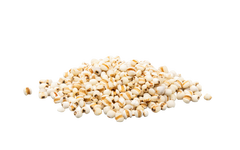
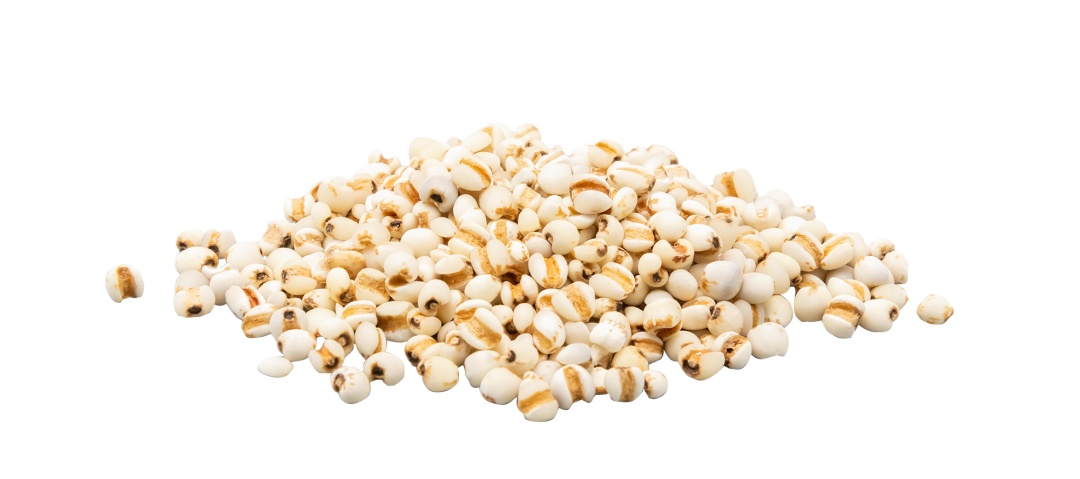
“If Grains Could Speak”
“
Popular Science Series on Job’s Tears
Job’s Tears (Coix lacryma-jobi), also known as Yi Yi Ren (薏仁), Yi Mi (苡米), and Yi Ren (苡仁), is a commonly consumed food that serves both medicinal and dietary purposes, hailed as the “King of Gramineous Plants”. The origin of Job’s Tears is related to the idiom “Yi Yi Ming Zhu” (薏苡明珠), which comes from the Book of the Later Han (《后汉书·马援传》) and tells a historical story from the Eastern Han period in Guilin, Guangxi.
According to legend, during the Eastern Han period, the southern regions were plagued by miasma, causing afflicted individuals to experience numbness in their limbs, lower limb edema, and overall swelling. General Ma Yuan, under the orders of Emperor Guangwu of Han, led troops to Guangxi to quell the southern rebellion. Many soldiers contracted this illness, rendering them unable to fight. The military doctor had never treated such a disease, and as the number of sick soldiers increased, Ma Yuan issued a notice: “Anyone who can provide a remedy for this illness will be rewarded with five hundred taels of silver.” On the seventh day, a beggar with a dog-beating stick came forward. The soldiers brought the beggar to the military camp, and Ma Yuan asked, “What is your miraculous remedy?” The beggar smiled and took out a handful of something resembling pearls, saying: “This is called ‘Hui Zhu Zi’ (慧珠子), also known as ‘Yi Yi Ren’ (薏苡仁), which is grown in the fields here. Boil a handful to make a soup, and after drinking it, you will recover.” Ma Yuan, half in disbelief, had soldiers collect some, and unexpectedly, the sick soldiers quickly recovered after consuming the Job’s Tears soup. Ma Yuan was very pleased and prepared to reward the beggar with five hundred taels of silver, but the beggar had already disappeared.
Upon returning victorious from the southern campaign, Ma Yuan brought back several carts of Job’s Tears seeds, intending to plant them in the north. However, this was misrepresented by malicious individuals as “a large amount of pearls collected through extortion,” resulting in him and his family being wrongfully accused. This incident is known as the “Slander of Job’s Tears”. The Tang dynasty poet Bai Juyi wrote, “The dwarf laughs at Dongfang Shuo, while Job’s Tears slanders General Ma Fu Bo.”
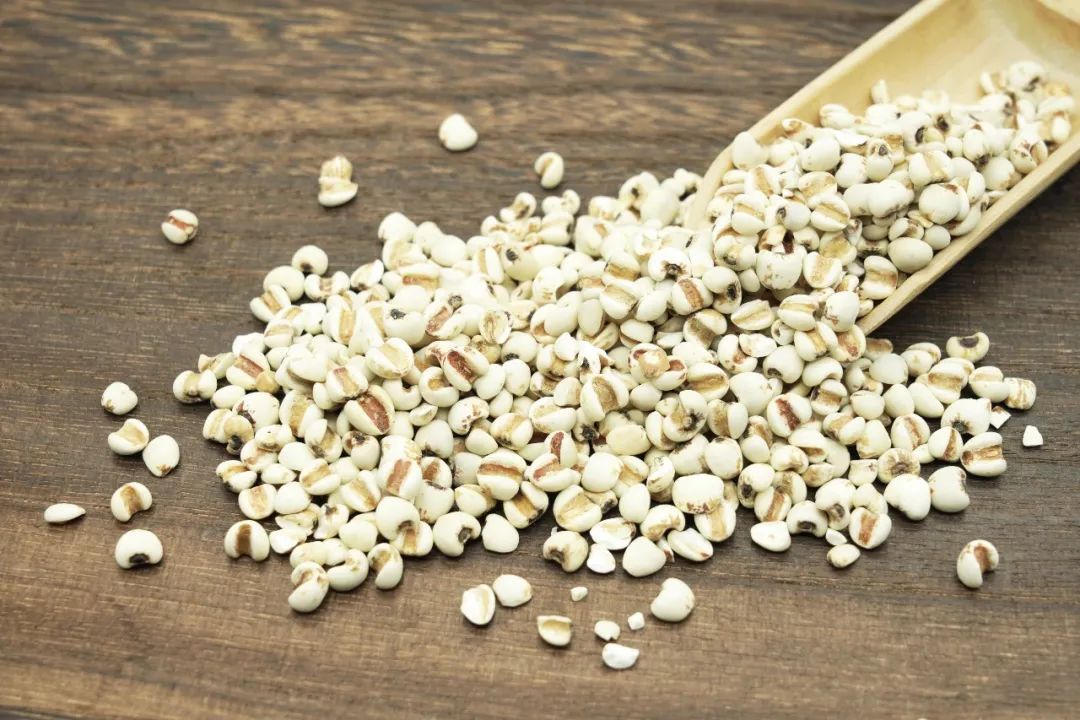
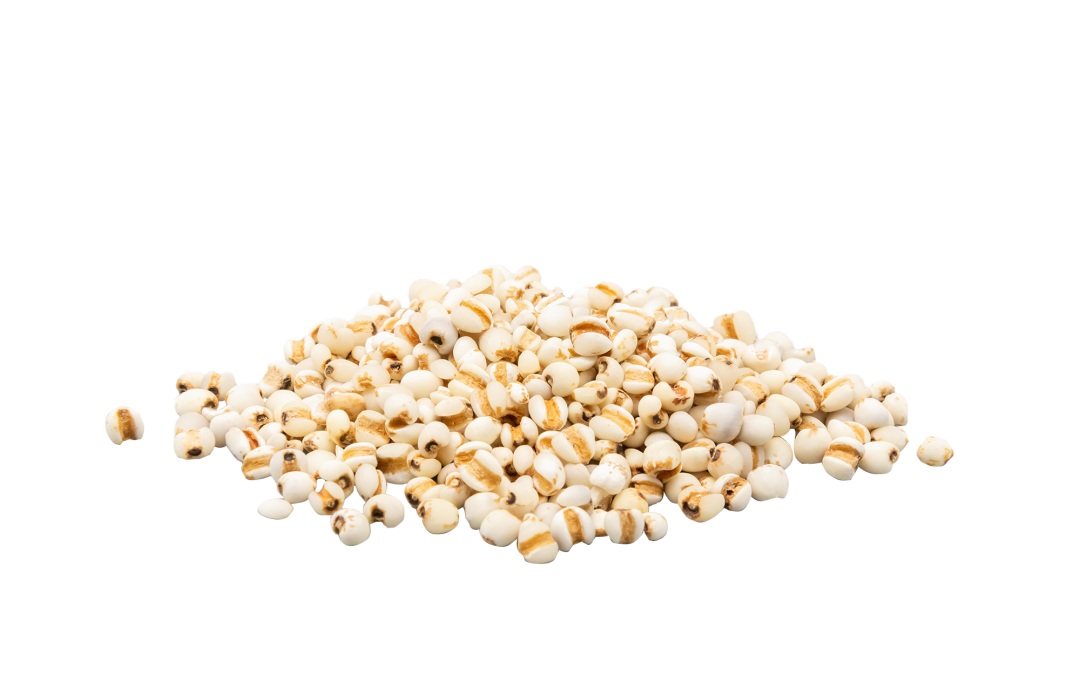
In China, Job’s Tears has entered the common diet as a health-promoting grain. Compared to rice and wheat, the yield of Job’s Tears is relatively low. The main production areas of Job’s Tears in China have formed four major regional brands: Guizhou Xingren Job’s Tears, Fujian Ninghua Job’s Tears, Longhua Jinsha Job’s Tears, and Fujian Pucheng Job’s Tears. Among them, Pucheng Job’s Tears has a cultivation history of over 4,000 years and was a royal tribute during the Guangxu period, now recognized as a national geographical indication product of China. Guizhou Province also has rich resources of Job’s Tears, known as the “Hometown of Job’s Tears”. In terms of planting area and output value, Guizhou has become the largest processing and distribution center for Job’s Tears in the country and surrounding regions, with the largest planting area and output in the nation.
China ranks first in the world in the production and processing of Job’s Tears, and the single Job’s Tears product can no longer meet market demand. To enrich the market offerings of Job’s Tears and enhance its added value, various processing enterprises and research institutions have gradually developed new Job’s Tears products. The new Job’s Tears products mainly include the following categories: first, primary products such as golden Job’s Tears and glutinous Job’s Tears; second, deep-processed products such as Job’s Tears noodles and Job’s Tears baked goods; third, functional products such as Job’s Tears oil and Job’s Tears facial masks.
Job’s Tears sold on the market actually vary in appearance. Do you want to know how to distinguish Job’s Tears?
Job’s Tears are mainly divided into three types: large Job’s Tears, red Job’s Tears, and small Job’s Tears.
Large Job’s Tears, like rice, have a husk, bran, germ, and endosperm. The large Job’s Tears commonly used in traditional sweet soups and desserts are actually the refined white Job’s Tears, which are generally believed to have whitening and diuretic effects.
Red Job’s Tears have become a popular health food in recent years, also known as brown Job’s Tears, referring to the whole grain that has not been deeply processed, containing bran, endosperm, and germ. The difference between red Job’s Tears and large Job’s Tears (white Job’s Tears) is that the red bran is retained, which is rich in more nutrients and dietary fiber. The fat content in red Job’s Tears is significantly higher than that of ordinary grains, but to avoid contamination with aflatoxins from the bran, many merchants will directly remove the bran, making red Job’s Tears harder to find and more expensive.
Small Job’s Tears are similar in size to mung beans, but they are not Job’s Tears; they belong to barley and are processed from hulled barley or pearl barley. They not only have a higher carbohydrate content but also have far less nutritional value than large Job’s Tears and red Job’s Tears.
Therefore, it is recommended to choose red Job’s Tears whenever possible, followed by large Job’s Tears.
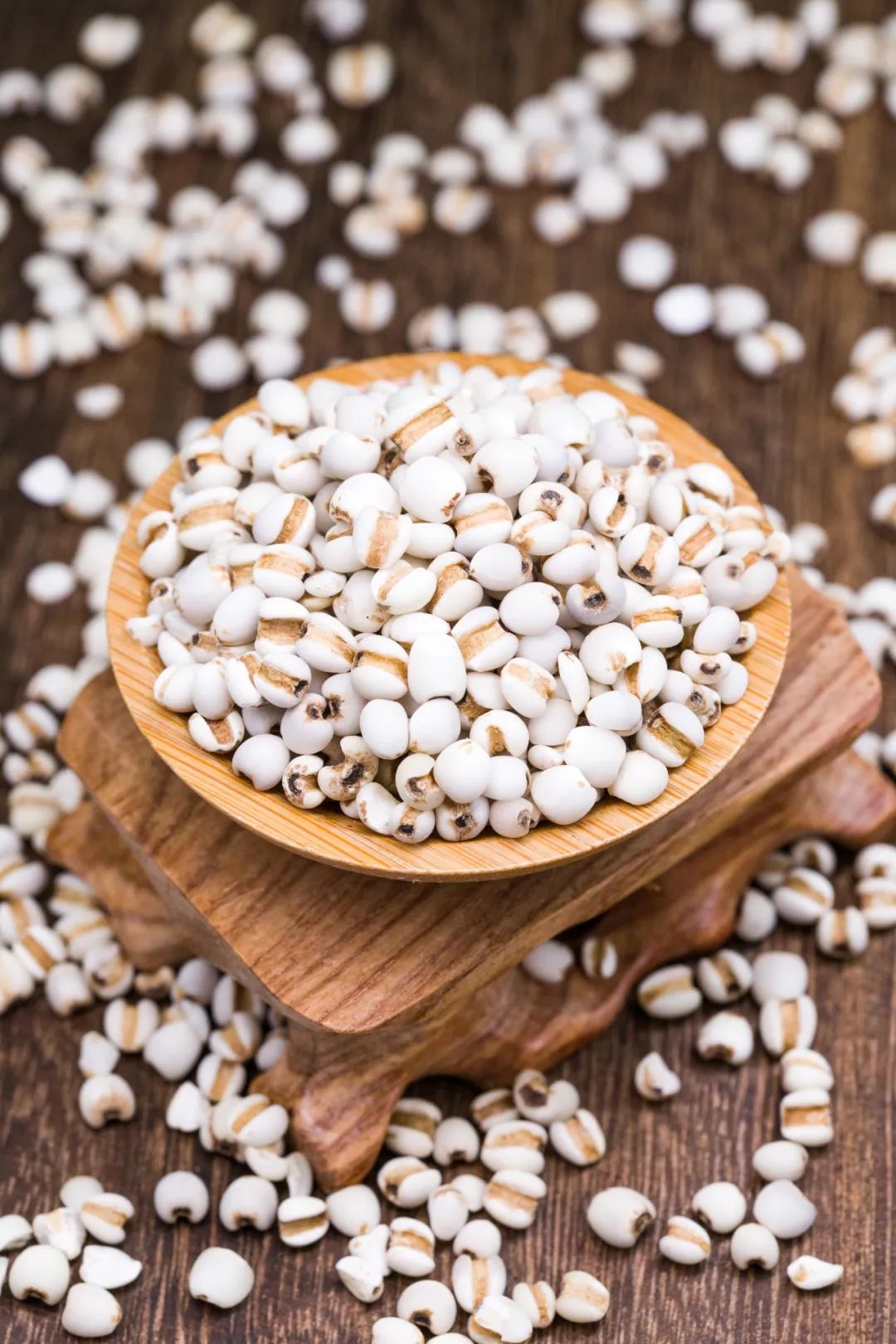
Question
As a food that serves both medicinal and dietary purposes, what medicinal value does Job’s Tears have?
Answer
Job’s Tears has diuretic and anti-edema properties, strengthens the spleen and dispels dampness, clears heat and expels pus, has anti-inflammatory and analgesic effects, and enhances immunity. Job’s Tears is rich in polysaccharides, among which polysaccharides A, B, and C have blood sugar-lowering effects.
In traditional Chinese medicine, there is a saying: “Raw is for diuresis, cooked is for tonification.” Raw Job’s Tears can promote diuresis and dispel dampness, and can be used when experiencing difficulty urinating, beriberi, or rheumatic pain. However, raw Job’s Tears are cold in nature and should not be consumed for long periods; if there is spleen deficiency with excessive dampness, resulting in symptoms such as dizziness, heaviness in the body, and thick greasy tongue coating, roasted Job’s Tears can be chosen to strengthen the spleen and dispel dampness. It is important to remember to roast the Job’s Tears before cooking them into porridge. The roasting method is simple: remove impurities and bad Job’s Tears, place them in a pan without oil, and stir-fry over low heat for about 10 minutes until they turn a golden color.
Recipe Introduction
Many of us enjoy making porridge with Job’s Tears, which is healthy and nourishing. Below, I recommend a health food—Lotus Seed, Tremella, and Job’s Tears Soup.
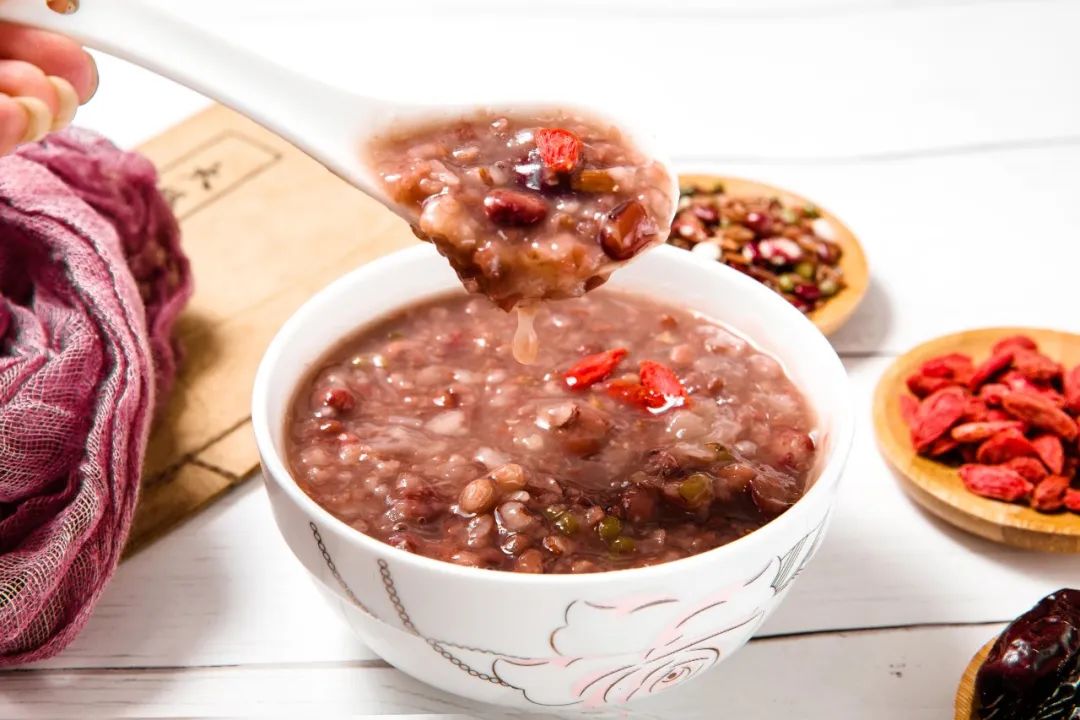

Soak the Tremella in advance, wash it clean, remove the roots, and tear it into small pieces. Wash the red dates, Job’s Tears, and lotus seeds, and soak the goji berries.
Put the Tremella, Job’s Tears, red dates, and lotus seeds into an electric pressure cooker with an appropriate amount of water, cover the lid, and select the porridge mode for 20 minutes.
After cooking, add the washed goji berries and simmer for a while, then add an appropriate amount of rock sugar. Once the rock sugar has melted, the soup should be slightly thickened before serving.
Lotus
Seed
Tremella
Job’s
Tears
Soup
Source: Official Chinese Good Grain and Oil
Editor: Niu Xi
Reviewed by: Wu Junjie
Previous Recommendations
|
|||
|
|||
|
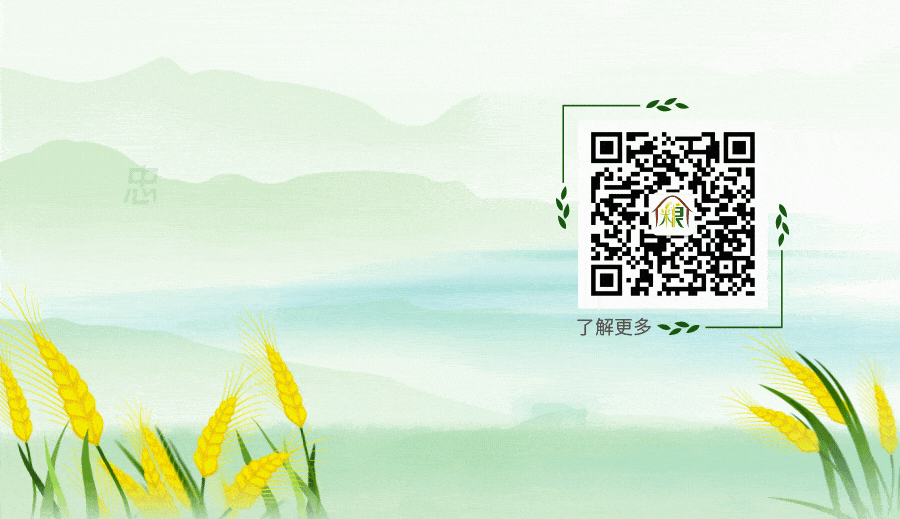

Share

Like

Looking

